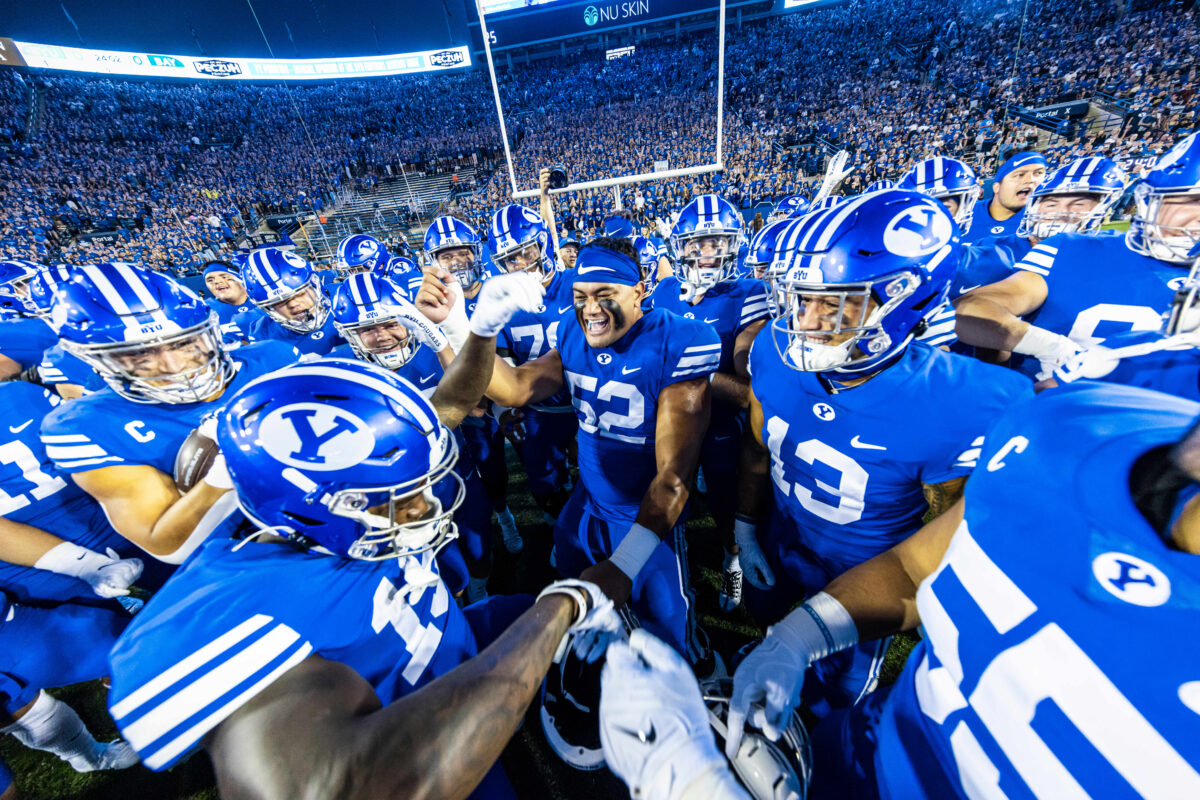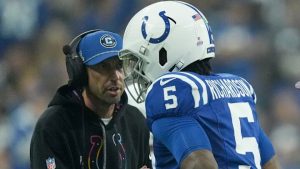
BYU’s official colors are blue and white, but green appears to be the color that everyone in collegiate sports cares about these days.

Green, as in money.
It has played a significant role for much of the last half-century, as seen by the lavish facilities and exorbitant pay paid to coaches.
However, the recent evolution of massive amounts of name, image, and likeness (NIL) monies, as well as the engagement of collectives, has made green an even more important priority for teams looking to compete at the highest level.
But this puts the Cougars in a difficult situation.
BYU is, of course, a religious institution owned by the Church of Jesus Christ of Latter-day Saints, which focuses on spiritual assets rather than temporal ones.
Although no church donation funds are used by the Cougar athletic department, BYU has tended to be more economically cautious than other colleges, at least in part because it does not want to be perceived as focusing on money.
Until this year, BYU head coaches were frequently paid much less than their contemporaries at well-known programs. The investment in facilities in Provo has generally been strong, but not as expensive as in other areas.
However, reports about recent changes to the Cougar men’s basketball team suggest that approach is changing. Thanks in large part to great assistance from the BYU community, the Cougars were able to employ Kevin Young from the NBA and have players sign on with rumors of hefty NIL payouts on the horizon.
So, where does this leave BYU’s head football coach, Kalani Sitake, and the other Cougar teams?
And how do the players who choose to come to Provo in part for the BYU experience as well as the on-field chances handle taking advantage of the financial windfalls available while not becoming greedy and letting money become the primary focus?
Cougar Junior Safety Micah Harper, who recently graduated and is beginning his graduate program in business administration, feels the key is to stay focused on the core goals.
“I just tell myself to keep the main thing,” Harper remarked in a June interview. “Money is nice. Everyone desires money. Everyone aspires to make the biggest money in the world. However, if you keep the fundamental point in mind, everything else will fall into place.
“It’s irrelevant in the end of the day. People can drive Lamborghinis and earn millions of dollars, but it doesn’t matter on the field if you don’t win.”
While Sitake supports initiatives that will benefit his players, he also wants to make it obvious that BYU has other objectives than simply determining how much money a player can put in his bank account.
“I think the thing for me is that players come to BYU because of the university and the mission of the church,” according to Sitake. “We have an overall mission for our program that will be in line with our religion and with the institution. That is the standard set by our staff and coaches, as well as the expectations of our fans and church members. That is something we need to examine.”
That is why Sitake stated that his goal with NIL opportunities is to ensure that his athletes are equipped to manage them properly.
“The focus needs to be on education and what’s best for them,” according to Sitake. “Some people believe that they should be able to earn as much money as possible. But is that the best option for them? Money may be harmful, right? Isn’t education the best option for them? We are an institution responsible for their education.
“I’m not saying they shouldn’t get money, but I am saying that we should be able to teach them about money and the responsibilities that come with it, as well as the hazards. However, you must prioritize your studies. “That is the key.”
He agreed with Harper that if all players want is to pad their pockets, they will not make effective teammates.
“If the focus becomes only about money, then where’s the culture going to be built?” Sitake said. “With NIL and the transfer site and everything else, all of those things must compliment what your program is currently built on. “It cannot be the other way around.”
Sitake believes that great personalities produce great players, not just physically gifted athletes.
“I’m looking for a five-star character first,” Sitake explained. “Don’t take me wrong. I’m drawn to athleticism and talent, but I want to learn more about them and how they’ll fit into the program, as well as whether they meet our standards. After that, we’ll talk about NIL, revenue sharing, and all that stuff.”
He went on to say that “if money were the answer, then the teams with the highest payroll capture each year in every sport. But this isn’t how it works. Culture, team, and camaraderie are all important.”
However, players must understand that once these conditions are met, opportunities will come. Cougar senior quarterback Gerry Bohanon believes the players earned them and should take use of them.
“I’m all for them because we work hard,” Bohanon remarked. “We don’t have time for anything else. I believe that having a name and a fan base gives you the opportunity to play at a high level, and that is highly deserved. I believe that’s only fair to the guys who have been given those opportunities.”
However, Bohanon believes that the bottom line remains executing the work first in order to be compensated.
“I think for the young guys coming in, that’s not something to worry about,” Bohanon noted. “You must accomplish everything on the field. Don’t come to college begging for money or claiming you’ll get this or that. Concentrate on the fundamental issue, which is football and performing well.






